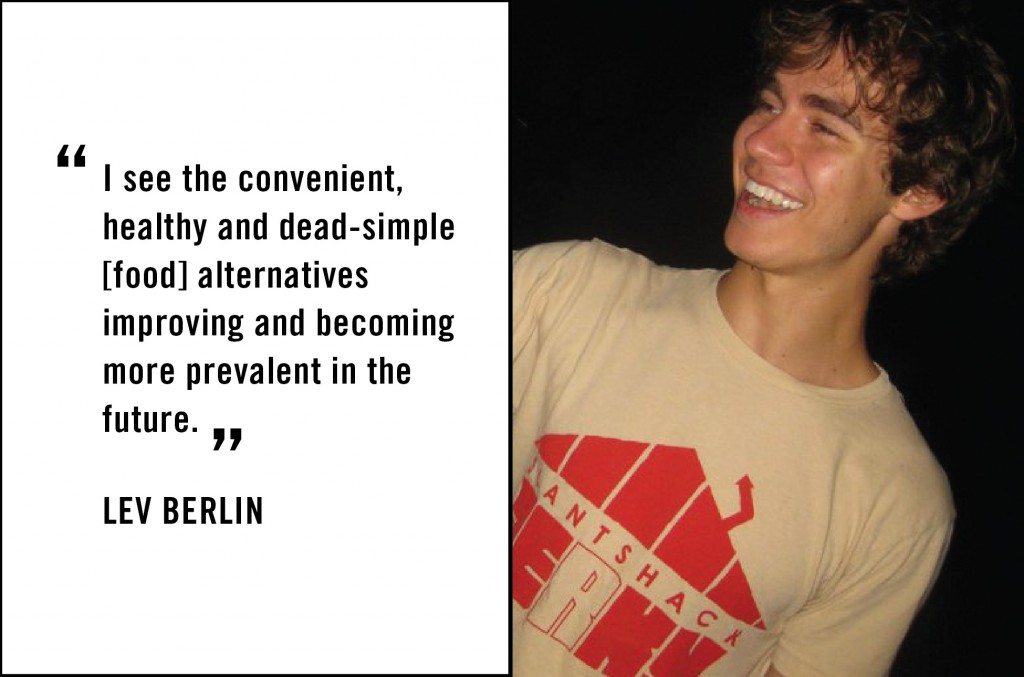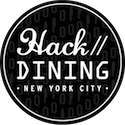Guest post by Lev Berlin, founder of Recipal. The views expressed here are solely those of the author and do not reflect the views of Food+Tech Connect.
Dining as we know it is already changing. We’re busier, but we want to eat more healthily. Good takeout, while highly accessible in New York City, is not an option in most other places. We can order meal kits from companies like Plated that get shipped to our doorstep, or watch cooking tutorials on our tablets to prepare elegant, healthy meals without knowing the first thing about cooking. That’s pretty incredible.
But it’s far from the future we imagined as kids watching The Jetsons. Some of us probably thought that we would all be eating steak and potato pills one day. But, eating, let alone cooking (and shopping, and cleaning, and taking out the garbage, and…) is very time-consuming, and for those of us that enjoy other things more than preparing food, that pill would be a game-changing technology.
On the flip-side, it seems like food keeps taking on a larger role in our lives. Celebrity chefs, food porn Instagram accounts, food blogs, Whole Foods, food trucks – amazing food has never been so accessible or such a big part of our culture. What you eat, where you eat, and why you eat in large part defines who you are.
But at the end of the day, the goal is to fill our stomachs in a way that is healthy, affordable and fulfilling, as well as convenient.
I see companies like Soylent taking a step back to understand the basic principles of eating. Soylent makes a complete-nutrition powder that you combine with water. You mix it once in the morning and drink it throughout the day instead of eating. They’ve definitely managed to cover convenience, health and affordability in their product, which is going to appeal to a growing consumer segment that wants to spend their time and money on things other than eating.
Soylent is just taking a first step, though. There is a long way to go before it hits the mainstream, i.e you don’t have to explain to your coworkers why you are going to drink your lunch instead of grabbing a sandwich with them. It’s definitely still “weird,” like those hippy toe shoes people wear (full disclosure, I’m a hippy toe shoe wearer).
That’s where design and technology comes in. How do you make that cool? How do you make it accepted? How do you make it more appealing to more people? Do you make a carnitas taco flavor and a kale salad flavor? Or do you leave the indulgent and fulfilling aspect of food to other food businesses? These are challenging technology and design questions that companies like Soylent are grappling with.
There will always be a balance between convenient healthy products and the indulgence of the 5-course meal, which can bring you back to your childhood or open your eyes to what food and flavor can be. But I see the convenient, healthy and dead-simple alternatives improving and becoming more prevalent in the future.
Hacking Dining is an online conversation exploring how we might use technology and design to hack a better future for dining. Join the conversation between June 2 – July 30, and share your ideas in the comments, on Twitter using #hackdining, Facebook, LinkedIn or Tumblr.
________________
 Lev is the founder of ReciPal. ReciPal makes simple web-based software for food businesses to do their own nutrition analysis and labels, recipe costing, and inventory management. Prior to ReciPal, Lev co-founded SlantShack Jerky, did Hacker School, and took a stab at a couple other tech startups. In a prior life, he was a consultant for Oliver Wyman after graduating from Princeton University. Lev loves all board sports, handstands, and spikeball.
Lev is the founder of ReciPal. ReciPal makes simple web-based software for food businesses to do their own nutrition analysis and labels, recipe costing, and inventory management. Prior to ReciPal, Lev co-founded SlantShack Jerky, did Hacker School, and took a stab at a couple other tech startups. In a prior life, he was a consultant for Oliver Wyman after graduating from Princeton University. Lev loves all board sports, handstands, and spikeball.




